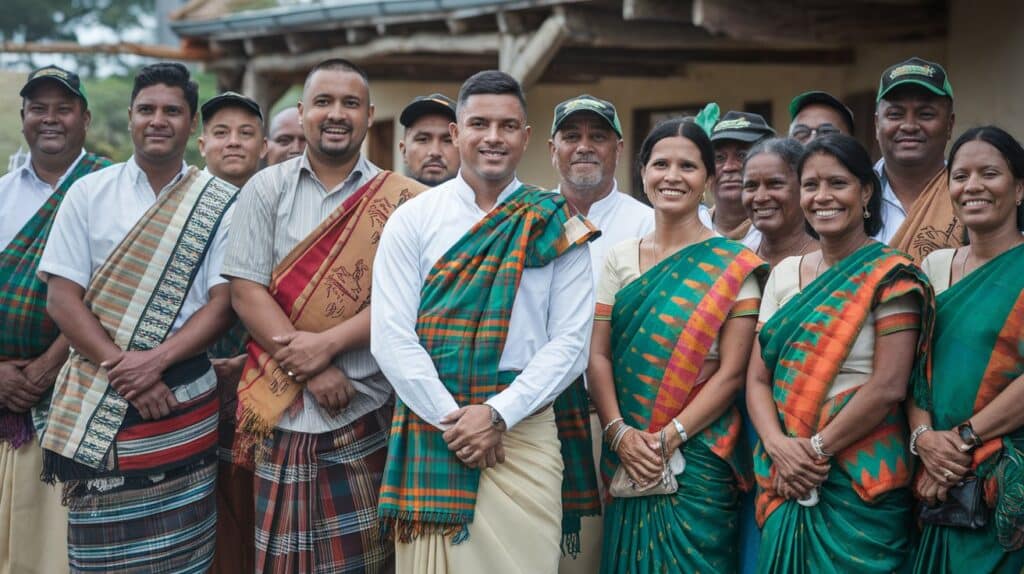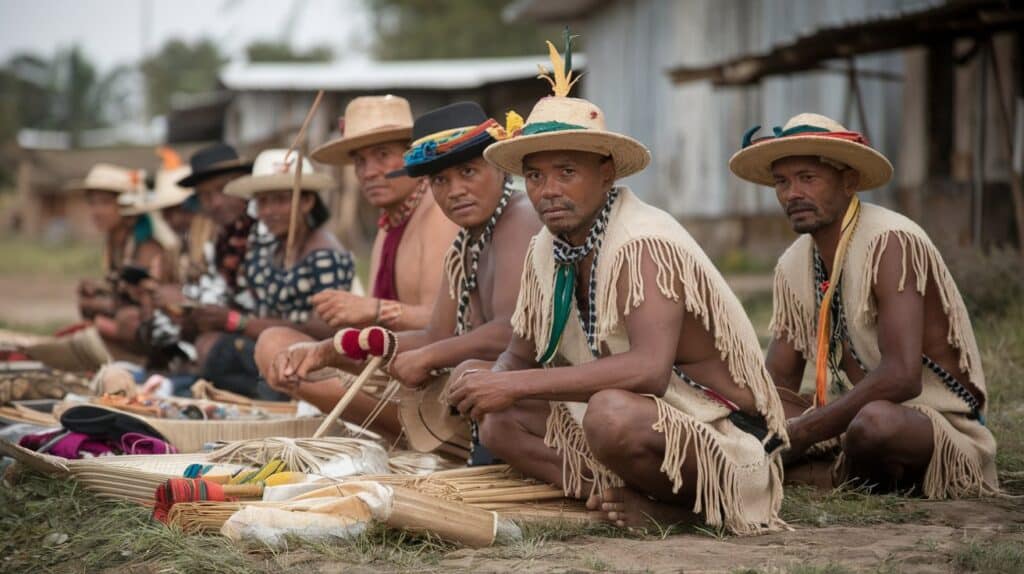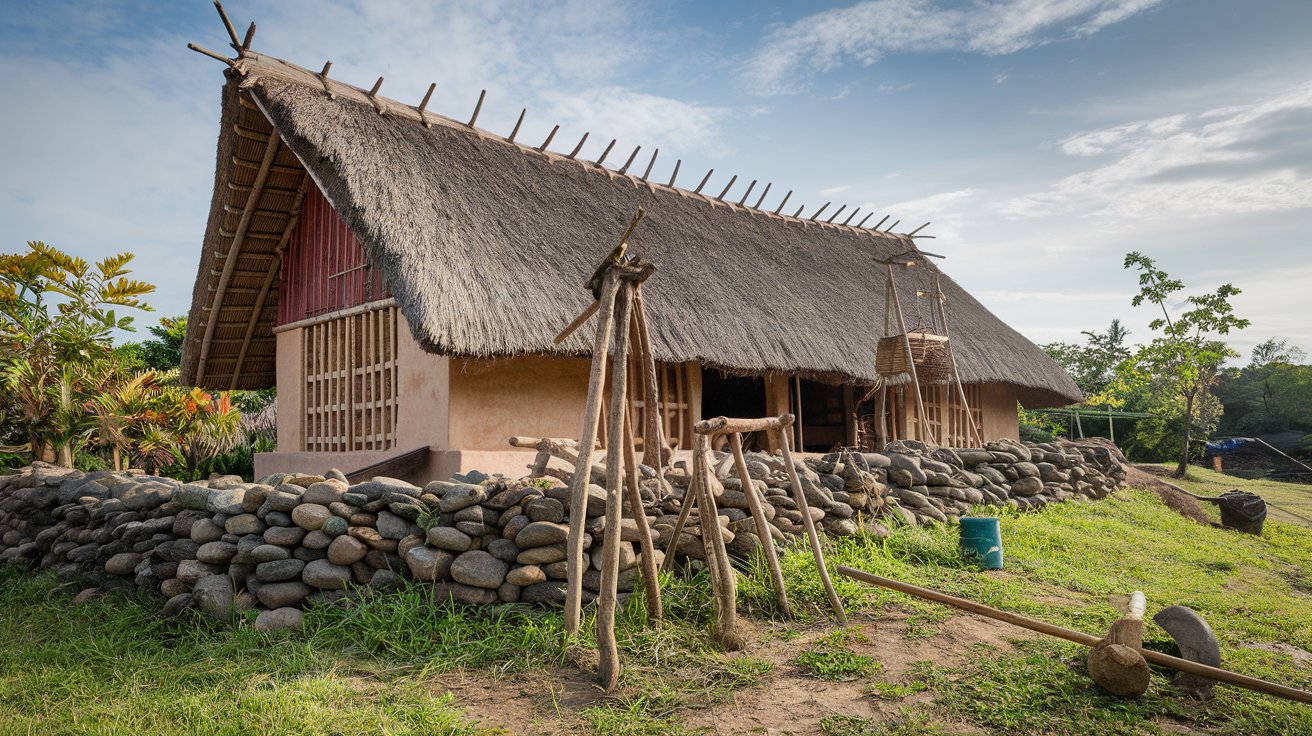The Agrawau, a vibrant community deeply rooted in the cultural tapestry of India, have long been an integral part of the nation’s social fabric. This comprehensive guide delves into the rich heritage, evolving traditions, and contemporary challenges faced by the Agrawau people.
From their origins in the historic city of Agra to their widespread presence across northern India, we’ll explore how this resilient community has preserved its identity while adapting to the winds of change.
The Enigma of Agrawau: Who Are They?
The Agrawau community, primarily concentrated in northern India, boasts a legacy that spans centuries. Known for their entrepreneurial spirit and strong cultural identity, Agrawaus have played pivotal roles in shaping the economic and social landscapes of their regions.
“To understand the Agrawau is to understand a microcosm of India’s cultural evolution.” – Dr. Rajesh Kumar, Cultural Anthropologist
Quick Facts:
- Origin: Believed to stem from Agra, Uttar Pradesh
- Primary Regions: Northern India, particularly Uttar Pradesh, Madhya Pradesh, and Rajasthan
- Known For: Trading, agriculture, and craftsmanship
- Language: Hindi and regional dialects
Roots and Branches: Tracing Agrawau Origins
The story of the Agrawau community is interwoven with the history of Agra, the city of the Taj Mahal. While legends abound, historical evidence points to their emergence as a distinct social group during the medieval period.
Ancient Beginnings: Fact vs. Folklore
Agrawau oral traditions speak of noble lineages and divine blessings. However, historians trace their roots to skilled artisans and traders who flourished under the patronage of various dynasties that ruled Agra.
Migration and Settlement
As their reputation for business acumen grew, Agrawau families began to spread across northern India. This diaspora led to the establishment of thriving Agrawau communities in cities like:
- Lucknow
- Kanpur
- Bhopal
- Indore
- Jaipur
Key Historical Figures
Several Agrawau individuals have left indelible marks on Indian history:
- Seth Govind Das: A prominent freedom fighter and member of the Constituent Assembly of India
- Shri Ram Sharma: Renowned Hindi writer and journalist
- Bhagwan Das Agrawal: Philanthropist who established educational institutions
The Heartbeat of Agrawau Culture
The Agrawau cultural heritage is a vibrant tapestry of traditions, arts, and spiritual practices that have been carefully preserved through generations.
Language and Oral Traditions
While Hindi is the primary language, many Agrawaus are multilingual, adapting to regional languages where they settle. Their oral traditions include:
- Folk tales celebrating entrepreneurial success
- Proverbs emphasizing honesty in business
- Songs marking life milestones and festivals
Artistic Expressions
Agrawau craftsmanship is renowned for its intricacy and quality. Some notable art forms include:
- Zardozi: Gold and silver thread embroidery
- Pacchikari: Inlay work on marble
- Tarkashi: Brass wire inlay work on wood
Spirituality and Belief Systems
While predominantly Hindu, Agrawau spiritual practices often blend various philosophical traditions:
- Devotion to deities like Krishna and Lakshmi
- Observance of Jain principles of non-violence and vegetarianism
- Emphasis on karma and dharma in daily life
Feast for the Senses: Agrawau Celebrations

Agrawau festivals are vibrant affairs that bring the community together, showcasing their love for life and tradition.
Calendar of Major Festivals
| Festival | Time of Year | Significance |
|---|---|---|
| Diwali | October/November | New Year, prosperity |
| Holi | February/March | Spring, renewal |
| Raksha Bandhan | August | Sibling bonds |
| Navratri | September/October | Divine feminine power |
Rituals and Ceremonies
Agrawau life is punctuated by numerous rituals, each carrying deep symbolic meaning:
- Mundan: First haircut ceremony for toddlers
- Janeu: Sacred thread ceremony for young boys
- Vivah: Elaborate wedding ceremonies lasting several days
Food and Feasting
Agrawau cuisine is a delightful mix of flavors, with dishes that vary by region but share common themes:
- Bedai: A crispy, stuffed bread served with spicy potato curry
- Petha: A sweet made from ash gourd, famous in Agra
- Gajak: A winter delicacy made from sesame seeds and jaggery
Earning a Living: Traditional and Evolving Occupations
The Agrawau community has long been associated with trade and agriculture, but their occupational landscape is evolving with the times.
Time-honored Trades
Traditionally, Agrawaus have excelled in:
- Jewelry making: Especially gold and silver work
- Textile trading: From local markets to international exports
- Banking and money-lending: Often serving as community financiers
Agricultural Practices
Many Agrawau families have deep roots in agriculture:
- Cultivation of cash crops like cotton and sugarcane
- Innovative farming techniques to maximize yield
- Investment in agricultural technology and machinery
Modern Adaptations
Today’s Agrawaus are venturing into diverse fields:
- Information Technology
- Medicine and healthcare
- Corporate management
- Start-up entrepreneurship
Agrawau in the 21st Century: Balancing Tradition and Progress
The winds of modernization have brought both opportunities and challenges to the Agrawau community.
Education Initiatives
Education has become a cornerstone of Agrawau progress:
- Establishment of community-run schools and colleges
- Scholarships for higher education, including overseas studies
- Focus on STEM fields while preserving cultural education
Technology Adoption
Agrawaus have embraced technology in various aspects of life:
- E-commerce platforms for traditional businesses
- Social media for community networking and cultural preservation
- Digital archives of Agrawau history and traditions
Urban Migration
The move from rural to urban areas has reshaped Agrawau demographics:
- Creation of Agrawau enclaves in major cities
- Adaptation of traditional practices to urban lifestyles
- Efforts to maintain connections with ancestral villages
Strength in Numbers: The Agrawau Community Spirit
The strength of the Agrawau lies in their sense of community and unity.
Social Structures
Agrawau society is organized around:
- Extended family units
- Community associations (sabhas)
- Professional networks
Conflict Resolution
Traditional methods of dispute settlement include:
- Panchayats: Community councils
- Mediation by respected elders
- Emphasis on compromise and harmony
Mutual Aid Systems
In times of need, Agrawaus rally around each other:
- Community funds for education and healthcare
- Support networks for new businesses
- Collective celebrations of individual achievements
Hurdles on the Horizon: Challenges Facing Agrawau Communities
Despite their resilience, Agrawaus face several challenges in the modern world.
Cultural Erosion
Preserving cultural identity in a globalized world is an ongoing struggle:
- Declining use of traditional attire in urban areas
- Reduced participation in community rituals among younger generations
- Influence of Western culture on lifestyle choices
Economic Pressures
While many Agrawaus have prospered, others face economic challenges:
- Competition from large corporations in traditional business sectors
- Need for constant skill upgradation in a rapidly changing job market
- Balancing financial growth with community obligations
Environmental Concerns
As stewards of the land, Agrawaus are grappling with:
- Impact of climate change on agricultural practices
- Sustainable development in urban Agrawau settlements
- Conservation of natural resources in ancestral lands
Agrawau Voices: Perspectives from Community Leaders
To truly understand the Agrawau experience, let’s hear from community members themselves.
Wisdom from the Elders

“Our strength lies in our ability to adapt while holding onto our core values. This is the legacy we must pass on.” – Shri Ramesh Agrawal, 78, Community Elder
Youth Initiatives
Young Agrawaus are taking charge of their community’s future:
- Organizing cultural awareness programs in schools and colleges
- Creating social media campaigns to promote Agrawau heritage
- Developing mentorship programs for aspiring entrepreneurs
Empowering Agrawau Women
The role of women in the community is evolving:
- Increasing participation in family businesses
- Leadership positions in community organizations
- Balancing career aspirations with cultural expectations
Looking Ahead: The Future of Agrawau Culture
As we look to the horizon, the Agrawau community stands at a crossroads of tradition and innovation.
Cultural Revitalization Efforts
Numerous initiatives aim to keep Agrawau culture vibrant:
- Digital documentation of oral histories and traditions
- Revival of traditional arts through workshops and exhibitions
- Inclusion of Agrawau history in school curricula
Political Representation
Agrawaus are increasingly asserting their voice in the national dialogue:
- Representation in local and national politics
- Advocacy for policies supporting traditional trades
- Participation in broader social justice movements
Global Connections
The Agrawau diaspora is fostering international recognition:
- Cultural exchange programs with overseas Indian communities
- Promotion of Agrawau cuisine and crafts in global markets
- Collaborations with international universities for research on Agrawau history
Conclusion: The Enduring Spirit of Agrawau
The journey of the Agrawau community is a testament to the resilience of cultural identity in the face of change. From their roots in the historic city of Agra to their spread across India and beyond, Agrawaus have maintained a delicate balance between preserving their rich heritage and embracing the opportunities of the modern world.
As we’ve explored, the challenges are real – from cultural erosion to economic pressures. Yet, the spirit of innovation, the strength of community bonds, and the deep-rooted values that have guided Agrawaus for generations continue to light the path forward.
The story of the Agrawau is far from over. It is a living, breathing narrative that continues to unfold, shaped by each new generation that takes up the mantle of their ancestors while forging their own unique path in the world.
For those interested in delving deeper into the fascinating world of the Agrawau, consider exploring the following resources:
- “The Agrawau Legacy: Trade, Tradition, and Transformation” by Dr. Anita Singh
- Agrawau Cultural Preservation Society (www.agrawauheritage.org)
- Annual Agrawau Business and Cultural Summit (held in rotating cities across northern India)
By understanding and appreciating the rich tapestry of communities like the Agrawau, we gain invaluable insights into the diverse cultural landscape that makes India truly unique. It reminds us that in our rapidly globalizing world, the preservation of cultural identity is not just a nostalgic endeavor, but a vital component of our shared human heritage.

Mark Joseph is a professional writer at Style Magazine US and has experience of more than 5 years in writing news and style articles.

